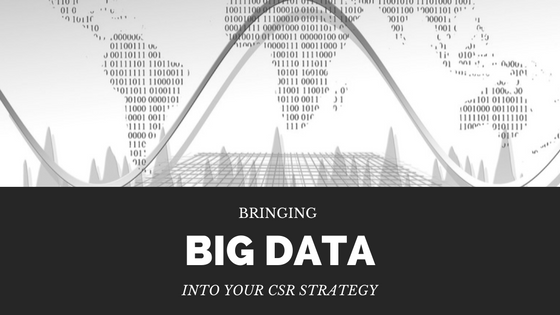
Big data is quite literally everywhere. Most everything we do, from the Tweets we send from our living rooms to the products we buy at Target with our Discover cards feed into the wide, wide realm of big data. And while some may see the collection of data regarding what you Tweeted about or the purchases you make on a daily basis as an invasion of your privacy, it’s important to also recognize the innumerable ways in which big data can impact the public for good.
At Lincoln Strategy Group, we’ve previously mentioned our prioritization of proper corporate social responsibility. It’s incredibly important for businesses large and small to recognize the impact they are having on the people around them–but it’s not uncommon for a business to fall into the trap of believing that they’re not hurting others with their practices. How can we self-evaluate for flaws in Corporate Social Responsibility practices without any inherent bias towards ourselves?
Enter big data.
No system is completely flawless when it comes to gathering, interpreting and analyzing data related to CSR. Self-reporting is the easiest and most cost-efficient means of determining where your business falls in the world of CSR, but it doesn’t always accurately reflect what’s going on within the organization at large. Instead, self-reports typically reflect what people believe is going on within the organization.
Gathering data on CSR efforts can be as simple as measuring attendance and the outcomes of community based philanthropy events you or your organization holds, measuring your company’s level of sustainable practices, or analyzing the data surrounding how CSR practices can increase or decrease sales and business interactions across the organization. Combining this with self-reported data from employees and stakeholders can provide incredibly valuable feedback on a business and its practices.
The fact of the matter is that data-rich companies have the edge when it comes to adapting and managing a proper CSR strategy. A better CSR strategy leads to better public perception, a potential for increased profits and higher morale across the board. If you’re not using data to benefit your CSR practices, it may be time to start.
